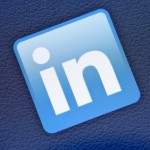Posts Tagged ‘social media’
LinkedIn Groups for Medical Professionals and Support Staff Who Share a Common Interest
Time is simply too scarce!
I will be the first to say that I don’t have enough time. Not enough time to work and certainly not enough time to play. With the advent of social media, I found my time even more precious. It is not that I spend my time socializing on these social networks. I am using it to communicate better with my patients and my peers. Unfortunately, each piece of the time pie just keeps getting cut smaller with the smallest segment seemingly used for sleep.
Why not Facebook and Twitter?
Now, I will be honest with you. I am also uncertain if there is true value with my being on Facebook and  Twitter. Yes, I try to post interesting information for my patients and peers and tweet witty phrases for all that actually follow what I might say. But I can’t help but feel that everyone, including myself, is overwhelmed with the vast sea of distractions that follow us on our computers, phones and iPads, 24/7 and wherever we go.
Twitter. Yes, I try to post interesting information for my patients and peers and tweet witty phrases for all that actually follow what I might say. But I can’t help but feel that everyone, including myself, is overwhelmed with the vast sea of distractions that follow us on our computers, phones and iPads, 24/7 and wherever we go.
What were the alternatives?
Let me digress for a discussion on what I did when a difficult issue cropped up in my world of embryo donation. I could certainly talk to my staff, e-mail my connections or actually use the old-fashioned phone to toss the dilemma around with my peers, but connecting wasn’t at all easy. It is hard to catch people at the right time and plus I couldn’t get more than one or two opinions over a few days.
E-mail list services (commonly called “listserv”) are interesting entities, reminding me of on-line bulletin board of days gone by but significantly more difficult to follow. While listservs are really useful to target a group of people with similar backgrounds, it wasn’t necessarily the best way to reach people of varying experiences and professionals in different fields that might have a perspective to add. Don’t get me started on how difficult they can be to read as many simply click reply re-copying all that was on the e-mail to start. When a number of people do this over a short period of time, the e-mail gets very long and very difficult to decipher important information from the din of republished material. They are probably the second best option but they simply are not that easy to work with.
Why LinkedIn?
 So, please understand that I was skeptical when I began to play with LinkedIn. Setting up my profile wasn’t complex but I wondered how useful it would be compared to my more comprehensive C.V. The problem was that patients and peers had to search for my C.V. whereas LinkedIn was providing the basics with the click of a mouse. OK, that was a plus but what about the rest of LinkedIn?
So, please understand that I was skeptical when I began to play with LinkedIn. Setting up my profile wasn’t complex but I wondered how useful it would be compared to my more comprehensive C.V. The problem was that patients and peers had to search for my C.V. whereas LinkedIn was providing the basics with the click of a mouse. OK, that was a plus but what about the rest of LinkedIn?
I knew that LinkedIn was described as the “Facebook for business” but I couldn’t really see my peers trolling LinkedIn as some are glued to Facebook. Certainly, if you are looking for an employee or for a job, it might be a great place to start, but what was the use of making all those connections when I wasn’t really doing anything with them? Did I really need to enter a popularity contest and see how many connections I could make? Really, not my style.
Why LinkedIn Groups?
Deciding I needed to create a social media forum where I might be able to coax others interested in the professional aspects of embryo donation to join me, I turned to LinkedIn Groups. LinkedIn Groups seemed to be ideal with it’s easy to read and understand format. I created the Embryo Donation Network.
There are strengths with LinkedIn Groups
My intention with the group was akin to the goal of large national/international infertility meetings where all types of professionals with similar interests converge, but to do this within the comfort of the professionals’ home or offices.
- I am able to screen the members, keeping only professionals in the group and politely redirecting patients to a host of other online information.
- I can utilize the many links I have created over the months, asking reproductive endocrinologists, reproductive attorneys, medical ethicists, embryologists, IVF coordinators, mental health professionals and administrative support staff who might have a potential interest in embryo donation to join the group.
- Polls are quick and easy, much easier that Constant Contact or even MailChimp from my perspective.
- I can control posts if desired or simply let the members direct the conversations, posing tough questions that we need each other to help figure out.
There still are some weaknesses with LinkedIn Groups
While I am still learning how to use the LinkedIn Group, there seems to be some sticking points that I haven’t quite figured out how to completely remedy.
- I can’t underline or bold words or sentences or easily add photos when I think greater emphasis is needed.
- It is not always easy to get the conversations started. I sometimes have to post a question a second time for someone other than myself to continue the conversation.
- It is too easy for the same talking heads to lead the group, and that certainly includes myself! Motivating other members is a challenge.
- While balancing the need for a continuous conversation without overwhelming the members, unless you have an active moderator, most groups seem to die a slow death.
- Unless I am missing something, I can’t seem to close and archive some conversations that I feel should be shelved for now.
- Some of the groups are just pure self-promotion. I’ve made it clear that posts such as these will have to be tossed into the Job section, the Promotion section or simply be removed. I think this is the biggest turnoff to the LinkedIn groups these days.
My eventual wish list for LinkedIn
Perhaps someone from LinkedIn will actually read this blog and consider the weaknesses listed above and the wish list I created below:
- If someone joins my group, it should be easier for me to add them to my network. As it stands, I have to know their e-mail address to connect to them and I don’t have this on many of my group members.
- It would be truly wonderful to have a bunch of live talking heads discussing issues though live audio and perhaps video feeds. Creating such a meeting place would be invaluable.
- Some sort of detailed analytics report would be useful for trying to see what topics created the greatest level of discussion. One has to track this by hand to see the patterns and Google Analytics does this with more ease for websites.
The Embryo Donation Network is the best method I have found to communicate with professionals who have a similar interest
Where else could we get some amazingly accomplished people into embryo donation conversations? Where  else can you get so many professionals to pay close attention to a single topic for any length of time? Since launching early this year, we now have approximately 180 members and continue to grow. Compared to the LinkedIn groups for RESOLVE that has 843 members and ASRM that has 516, I think we are doing just fine. And it is not really about numbers, it is about the quality of the discussions among experienced professionals.
else can you get so many professionals to pay close attention to a single topic for any length of time? Since launching early this year, we now have approximately 180 members and continue to grow. Compared to the LinkedIn groups for RESOLVE that has 843 members and ASRM that has 516, I think we are doing just fine. And it is not really about numbers, it is about the quality of the discussions among experienced professionals.
So, if you are a professional interested in embryo donation, especially its ethical, medical, psychological and legal aspects, then the Embryo Donation Network is for you. Please join LinkedIn, change your search category (found in the upper right corner of your LinkedIn home page) to “groups” and type in “embryo donation” to find the Embryo Donation Network. From there, simply click, request to join the group and you will be added quickly. I promise not to overwhelm the members; my intent is to post only one general topic per week. The only perquisite is that you are truly interested and, hopefully, somewhat willing to jump right into the fray and interact with other professionals who share your interest.
Do I miss posting as many messages on Facebook for my patients and peers? Not really, as I am not naturally a social animal. I’d rather read an article than discover someone liked my last post or if we have created any new connections. Have my number of tweets decreased on Twitter? You bet. Have the number of articles I commented upon in Digg fallen? Certainly. Am I sleeping a bit less? Inevitably so. But what has vastly improved is my ability to reach out to some highly skilled professionals and pick their brain when mine is a bit confused. I also hope that I may, in some small way, be teaching others about the amazing world of embryo donation one topic at a time. Come and join the fun – join LinkedIn’s Embryo Donation Network!

Craig R. Sweet, M.D
Reproductive Endocrinologist
Practice and Medical Director
Embryo Donation International
And more importantly….
Moderator, Embryo Donation Network